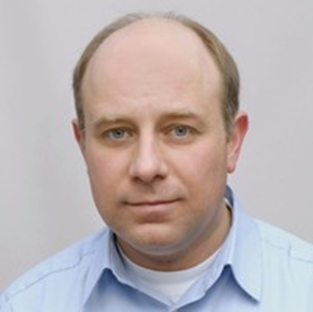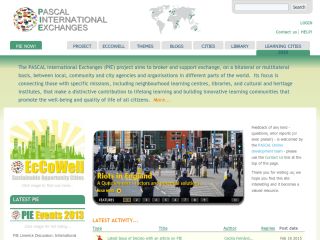Visiting Professor from Bulgaria visit to PASCAL (AFRICA) hosted by the Centre for Economic Development, School of Economics, University of Johannesburg
It was an immense pleasure for the PASCAL (Africa) to be hosting Professor Kolev from the University of Economics in Bulgaria. His visit was mid-April, at the beginning of Autumn for us in Johannesburg, so we still had the benefits of out afternoon thunderstorms, along with our exciting displays of lightning and cold winds, typical of Johannesburg for this time of year.
Kaloyan Kol ev (pictured right) is an Associate Professor at the University of Economics – Varna, on the shore of the Black Sea in Bulgaria, where he heads the Department of Economics and lectures on assorted topics in Micro, Macro, and International Economics for the past 25 years.
ev (pictured right) is an Associate Professor at the University of Economics – Varna, on the shore of the Black Sea in Bulgaria, where he heads the Department of Economics and lectures on assorted topics in Micro, Macro, and International Economics for the past 25 years.
Throughout his career, Kaloyan Kolev has primarily focused his research efforts on the theory of Multinational Enterprises and their impact on trade, development, labor market and regional disparities. In recent years, he has dedicated considerable time to exploring the applications of behavioral insights in macroeconomic analysis. With a diverse range of expertise, Kaloyan Kolev has authored more than fifty publications and was invited as a guest lecturer in Germany, Italy, Sweden, Poland, Slovakia, Romania, and India.
The inception of Bulgaria's institution for commerce education, which would evolve into the University of Economics – Varna, was catalyzed by the burgeoning need for economic education amidst the industrial and cultural expansion of the 1900s. Recognized as a pivotal commercial center in Bulgaria by the dawn of the century, discussions for the foundation of this educational establishment were initiated by the Varna Chamber of Commerce and Industry's managers in 1911, with a definitive decision being made during the Chamber’s 21st session in 1914. Until 1936 the university-trained general economists to work as accountants, financial and trade specialists. In 1990 the higher school was rebranded as University of Economics – Varna, following a decision of its General Assembly, formally recognized by the National Parliament in 1995
During his visit, Prof Kolev presented two key lectures, and a class to the second-year economics students. He was also interviewed by our extremely popular UJFM, a university-based radio station which broadcasts on radio across most of Provence and is very much loved by the students.
In the first lecture, hosted by Economic Development and Well-being Research Group (EDWRG), the professor very diligently and authoritatively spoke on the topic of “Unravelling the Psychology of Price Perception: A Behavioral Approach to Understanding Inflation.’
The nature of his talk spoke of household inflationary expectations have become important concerns due to their significant implications for economic outcomes, including inflation dynamics, consumption behavior, investment decisions, and monetary policy effectiveness. In general, the relationship between household inflationary expectations and inflation dynamics is complex and dynamic. These expectations can become self-fulfilling prophecies, leading anticipated inflation to drive actual price hikes. This can result in persistent inflation that is challenging to address using traditional monetary policy tools. Therefore, understanding the dynamics of household inflation expectations is crucial for policymakers, businesses, and investors.
The Professor explained that traditional macroeconomic theory often explains inflation expectations through the lens of the Phillips curve and rational expectations theory. However, recent surveys conducted by central banks have shown stark contradictions with these theoretical predictions. The lecture aims to address this paradox by incorporating behavioral insights. The lecture explored the differences between perceived and actual inflation, how households utilize heuristics to anticipate inflation for coping with incomplete information, it will examine the biases stemming from the use of mental shortcuts and their impact on monetary policy.
During his second lecture, he spoke to the LED community as well as our master’s and the PhD students on Local Economic Development on the topic of “Regional disparities in the EU and/or Bulgaria: sources, dynamics, regional and cohesion policy.” The topic too was well presented, and the professor showed his acute strength at discussing key economic and regional issues from the Bulgarian perspective. In his talk he really got down to the details of LED as he guided his audience through the complexities of Bulgarian investment, regional disparities, and political frustration. Students and practitioners well attended the lecture.
During his stay we introduced the Professor to our international division, as well as the vice Dean of Teaching and Learning (Prof Tselepis) and the vice Dean of Research (Prof Twinomurinzi). Both deans took a liking to our visiting professor, and we began discussions on a PhD Program in Cultural Economics and Entrepreneurship, to be hosted by both Universities.
For the visiting Prof, the stay was high in activities and expectations. Dr Frederich Kirsten took the Professor to one of our key LED research areas, the Cradle of Humankind World Heritage Site for a tour of the local communities and businesses within the area. We also visited the Lion and Rhino Park where the professor got to go on Safari and see up close lions and other wild animals. On other days we took the Professor to other key cultural centers between Johannesburg and Pretoria, with the aim of sharing our heritage and cultural roots.
Overall, the Professor was absolutely amazed at the beauty, the development, and the energy in the Johannesburg region. He was moved by the enormity of the University of Johannesburg and the warm welcomed hospitality that he experienced during his stay, which, as anybody who has visited South Africa knows, is incredibly unique to South Africa.
When he returned to Bulgaria, the professor sent the following message: “This is one of the most wonderful experiences I have ever had. South Africa and its people are wonderful! I'm in love with your country. I'll be back for longer no matter how.”.
 Printer-friendly version
Printer-friendly version- Login to post comments






